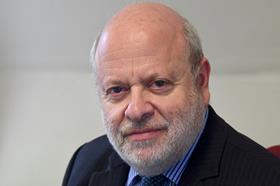Among its many other sins, it is the government’s fault that I could not write about its trade strategy at the same time as its industrial strategy. The two strategies were published three days apart, and my deadline fell in between.

I will not repeat what I wrote about the industrial strategy, although much of the background is the same.
This time, instead of being a frontier industry, as legal services were described in the industrial strategy, we are now part of a ‘services superpower’. The UK is the second largest exporter of services in the world (echoed by the fact that England and Wales is also the second largest market for legal services in the world).
Things are predicted to get even better. The trade strategy says that services sectors are expected to account for more than a quarter of global trade, and more than three-quarters of global GDP, by 2035.
The UK’s current statistics for all services are dazzling: for instance, in 2024, the UK exported services worth £508bn to the rest of the world, dwarfing the £314bn of services that we imported. Our services sales are now worth more than those of our goods.
The trade strategy describes how services were traditionally relegated to the margin of debates: an extra line described as ‘invisibles’ on the Balance of Payments. But now the UK’s services sectors, very much including legal services, are our most powerful engine of growth and prosperity.
Read more by Goldsmith
Services have so far avoided most of the disturbances faced by goods in the Trump administration’s trade war. Yet services are increasingly being exported as part of a goods transaction, which exposes some services exports to the current disruptions. And the real truth is that President Trump has not yet discovered, or not yet leveraged, the US’s export of services – I wrote last week about European anxiety as to whether he might do this in relation to tech services, and the consequent rush to digital sovereignty.
The strategy gives important clues as to why the export of UK legal services is so successful. One is the global use and citation of English law, which has been much discussed in the pages of the Gazette. The Law Society puts out an invaluable annual survey on and the statistics are astounding.
But another is not so often discussed, which is the continued spread of English as the lingua franca. We take it for granted nowadays, although it is a relatively recent historic development, super-charged by the arrival of the internet and US tech dominance.
Lawyers are an inevitable part of the spread of English. I will give just one example, which comes from the training of European lawyers in recent EU legal developments.
I moderate webinars which do just that. Officials from the European Commission and other European institutions join lawyer experts to explain to hundreds of lawyers at a time what is happening in a particular area of law, and how it will affect their practices.
The audience is made up of lawyers from every corner of Europe, north, south, east and west, and usually number at least 500 lawyers at any one time, sometimes many more. Only a tiny proportion of the presenters and audience are native English speakers, and the subject matter is usually EU law – yet everything is in English, the presentations, the slides, the questions from the audience. Even when interpretation is provided, the speeches, slides and questions are in English.
I am always astonished at the linguistic ability of so many lawyers to express themselves clearly and technically in another language – our language! And the area of law doesn’t matter: English might be expected in commercial topics, but the same applies to more domestically-focused areas like criminal law.
Of course, a multi-national institution like the EU needs a common language if it is to be able to function, and, because of the dominance of the US in so many areas, English is the obvious answer.
We know that the UK government does what it can to promote England and Wales as a global legal centre. In addition, the trade strategy launched the Ricardo Fund, to provide increased support to UK regulators (including our own, I hope) to remove regulatory barriers for UK businesses trading abroad.
But is enough being done to put resources into the spread of the English language? This would support our services sector.
I have had two young interns from Europe in succession recently, both law students. Both spoke flawless American-accented English, despite coming from Hungary and the Netherlands. At a time when travel to, and university study in, the US is becoming more difficult, is this not the time to promote the UK for English language learning?
It is odd to sound optimistic, but we have a lot going for ourselves, and promotion of UK English language-learning could help further.
Jonathan Goldsmith is Law Society Council member for EU & International, chair of the Law Society’s Policy & Regulatory Affairs Committee and a member of its board. All views expressed are personal and are not made in his capacity as a Law Society Council member, nor on behalf of the Law Society































2 Readers' comments